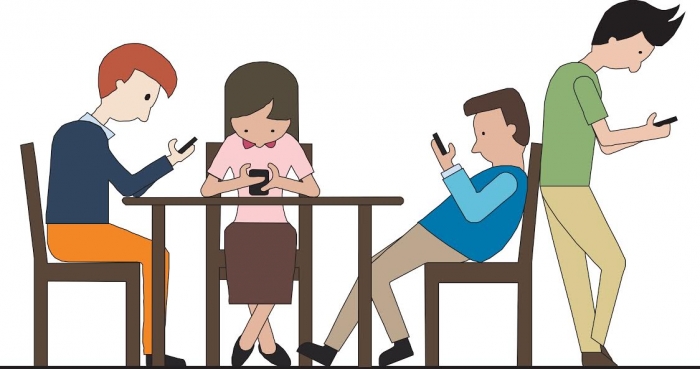A Jan. 12 Globe and Mail editorial warned smartphone users of the dangers of overusing their phones; however, its conclusions were less than satisfying. The Globe proposed that the government look into the addictive qualities and other consequences of phone use. Yet, there is already a large amount of research into the health risks of smartphone use—and it seems rather obvious that students and youth could do with spending less time on Instagram. Accordingly, there doesn't seem to be a good reason to wait for the government or tech companies to do something. After all, users are still the ones responsible for how long they spend on their phones, regardless of the challenges presented by their addictive qualities.
The litany of health concerns of from smartphone overuse is alarming. These range from well-documented effects on sleep, to the possible carcinogenic properties of the radio waves they receive and emit. Above-average smartphone use has been linked with sleep issues, especially when used at bedtime. However, what has tech experts most concerned are not the health implications of the devices themselves, but the addictive properties of the apps they carry.
Several whistleblowers in the tech industry have come forward voicing their concerns about the applications they’ve created. Former Google employee Tristan Harris asserts that applications are designed to keep people using them for as long as possible—think of autoplay on YouTube and Netflix. Harris thinks the tech industry has been too effective in this goal, to the point where mobile devices are taking up far too much of the population’s time due to their addictiveness. Harris even compares scrolling down an Instagram feed or refreshing one’s email inbox to pulling the handle on a slot machine. Phone users pull down their screens looking for instant gratification from new notifications.
A 2016 study by Gutiérrez et al. titled “Cell-phone Addiction: A Review” in Frontiers in Psychiatry seems to corroborate Harris’s concerns, confirming the existence of smartphone addiction and linking it to a variety of health concerns like anxiety, stress, and depression. It seems clear that users would benefit from moderating their smartphone usage. Given that phone withdrawal, while difficult, probably isn’t dangerous, there isn’t much downside.
John Stuart Mill contended that individuals who habitually wait for the government’s direction on how to act will have their facilities only half-developed. Even if the government studies the health risks of smartphone usage further, the onus still lies with the individual to change how they use their phone. Ironically, there’s an app for that. Moment is an iPhone screen-monitoring app that shows the user’s phone usage and breakdown by app and gives tips for healthier phone usage. Perhaps if users see how much time they spend on time-wasters and social media, they’ll become more mindful of how they allocate their time.
Another example is Surfblocker, an app that can help students be more productive by blocking time-wasting sites. Surfblocker also helps parents educate their kids on how to moderate their app usage. Changing society’s phone addiction starts with parenting; moderation in device usage is a new responsibility for today’s parents to raise their kids with healthy habits. For example, I still don’t let myself play video games during the week, even though my mum can’t stop me anymore. These apps and good habits can help users develop more self-control and overcome a possible addiction. Users and parents hardly need the government to tell them these things.
The jury is out: Modern society is overusing its smartphones. Smartphone users don’t need another study to tell them how much harm their devices are doing to them. Rather, we should all be more mindful of how we use our devices. Time is the most valuable resource we have, and it is key for our development as autonomous humans to learn how to allocate it. Certainly we can find better uses for our time than scrolling through countless Snap stories and memes.









Well said…….I found a site at Canada where I sold my old used smartphone in very good price. There website is “https://www.gizcan.com/sell/”. Really they providing good service in Canada. I am very happy to found there web page